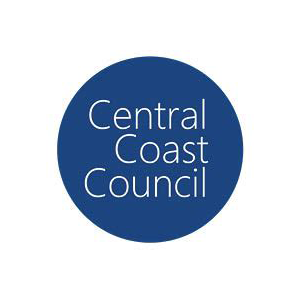Our journey
What council has achieved in the past in energy efficiency, renewable energy, sustainable transport or broader sustainability
Central Coast Council is committed to strong action on Climate Change. In July 2019 after extensive community engagement, Council adopted its first Climate Change Policy and in August 2019 a Climate Emergency was declared for the Central Coast.
Central Coast Council has always had a commitment and focus to reduce electricity consumption. Council has saved around $5.8 Million through its energy management programs including the development of a suite of analysis tools, energy procurement and energy-saving projects since 2012.
Council is also leading the way when it comes to renewable energy, installing over 600kW (kilowatts) of behind-the-meter solar since 2014. Council undertakes landfill gas capture for subsequent flaring and electricity generation across four (4) waste management facilities where gas generation rates are both tangible and collection is practical. The landfill gas electricity generation infrastructure installed and managed at Council’s waste management facilities is currently generating around 27,000 megawatt hours of reliable, base-load renewable energy annually.
Council has committed to transitioning Council’s passenger, light and heavy commercial vehicles from fossil fuels to electric over a 10-year period starting in 2017. Implementation to date has included the purchase of 5 Electric Vehicles to displace petrol vehicles in the pool car (car share) fleet. To support the EV Program Council has installed EV charging stations at 3 of its depots and the two Administration buildings. Council is also committed to smarter fleet management and has installed Global Positioning System (GPS) on Council’s plant vehicles as part of Council’s Smarter Fleet Program. Trials are underway for heavy vehicle transitions with the delivery of Council’s first hybrid diesel/ electric 20 tonne hydraulic excavator that occurred on 21 January 2020.
What council hopes to achieve in the future in energy efficiency, renewable energy, sustainable transport or broader sustainability
Council through its Climate Change Policy is aiming to be a Net Zero Emissions Region by 2050. The first step is to engage with the community to develop local place-based Climate Actions and a Climate Action Plan. The community engagement is underway, and it is anticipated the Plan will be developed in early 2021.
Council has set more ambitious greenhouse emissions reduction targets for its corporate emissions and is striving to achieve these through investing further in:
Renewable Energy – Central Coast Council one of the largest local government users of rooftop solar in Australia, installing an additional 1.2MW of solar this year, taking Council’s total installed rooftop solar capacity to 1.8MW. This project will generate approximately 1.4GWh of electricity p.a. This is equivalent to energy use of over 230 Central Coast homes each year.
Energy Efficiency – Council is working with Ausgrid to accelerate the replacement of approximately 10,000 mercury based compact fluorescent streetlight bulbs with LEDs
Sustainable Fleet – continuing the transition of our vehicle fleet from petrol based to hybrid electric and full electric vehicles, with an aim to have 95% of Council’s owned passenger and light commercial vehicle fleet transition to EV by 2030.
Active transport – the implementation of Council’s Bike Plan and Pedestrian and Mobility plan are part of Council’s commitment to deliver accessible footpaths, bike paths and shared pathways that complete missing links, improve connections and offer a healthy and sustainable transport option.
Greener Places – Council’s draft Greener Places Strategy establishes the greening vision for the Central Coast Region. The implementation of the Strategy and the greening vision requires a collective approach from both internal Council and community stakeholders. This project aims to accelerate tree planting across the LGA. The implementation of the Greener Places Strategy will be coordinated through the Green Grid Project. The notion of Green Grid emerged from the NSW Greening Policy and is a state-wide initiative of the State Government to mitigate urban heating and improve liveability in metropolitan areas.
Waste Management – Council’s Waste Resource Management Strategy 2020 sets the context and direction for our approach to reducing waste and recovering resources. The Waste Resource Management Strategy includes options for creating a circular economy on the Coast, and highlights Council’s commitment to making the Coast a more sustainable place through reducing our waste footprint.
What does council hope to gain from being a member of the Cities Power Partnership
Central Coast Council joined the Cities Power Partnership to highlight the benefits of coming together with like-minded councils to act on climate change. Central Coast welcomes the opportunities presented through the partnership to collaborate, build relationships, network and learn from each other all with the aim of reducing our climate impact.
